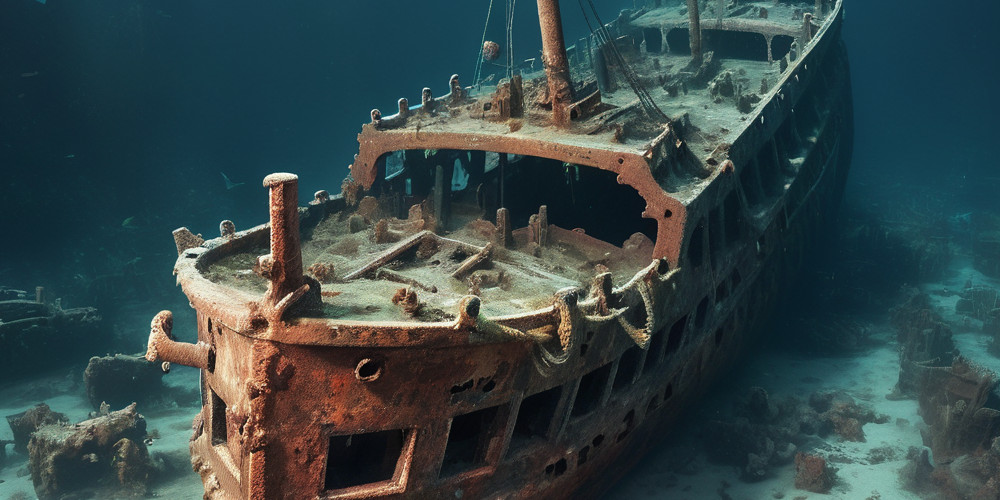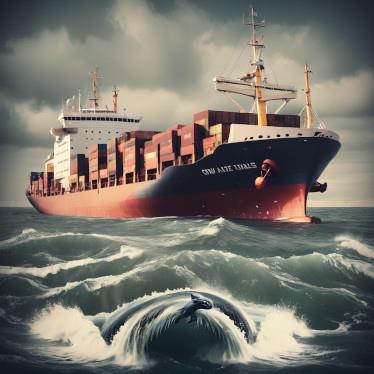
Beneath the vast expanse of the world's oceans lies a hidden mosaic of history, a submerged archive of human civilization's past endeavors, triumphs and tragedies. Resting in the silent depths, historic shipwrecks are time capsules preserving moments frozen in disaster and time. These underwater cultural heritages provide invaluable information about our history, maritime traditions and the evolution of naval architecture.
Importance of Underwater Cultural Heritage
Historic shipwrecks are more than just the remains of sunken ships; they are snapshots of human history, offering a glimpse into the daily lives, trade routes and sea battles of past civilizations. They reveal stories of exploration, colonization and the interconnection of different cultures. From the ancient sunken fleets of the Mediterranean to the ghostly remains of World War II warships in the Pacific, each wreck has a story that contributes to our understanding of historical events and human interaction with the sea.
Conservation Challenges
The conservation of underwater cultural heritage presents unique challenges. Shipwrecks are threatened by natural decay, looting and the damaging effects of modern fishing techniques and industrial activities. Salt water and marine organisms accelerate the deterioration of wood, metal and other materials, resulting in the loss of artifacts and structural details.
In addition, unauthorized salvage operations and treasure hunting pose significant threats to these sites, as valuables and artifacts are removed, disrupting the context and integrity of the wreck sites. Legal and jurisdictional complexities often hinder the protection and management of underwater heritage, especially in international waters.
Legal Frameworks and Conservation Efforts
Several international frameworks and agreements have been established recognizing the importance of protecting underwater cultural heritage. The 2001 UNESCO Convention for the Protection of the Underwater Cultural Heritage aims to promote the protection of underwater heritage and encourages states to cooperate in preserving this heritage for future generations.
Countries are increasingly recognizing the value of their maritime heritage and are implementing national laws and regulations to protect shipwrecks from looting and destruction. There is also a growing emphasis on responsible diving tourism, where divers can explore shipwrecks without causing damage, contributing to their conservation while appreciating underwater cultural heritage.
Developments in Underwater Archaeology
Technological advances have revolutionized underwater archaeology, allowing shipwreck sites to be more effectively explored, documented and preserved. Advanced sonar imaging, underwater robots and 3D modeling have enabled archaeologists to explore and analyze shipwrecks with minimal damage to the site.
These technologies provide detailed images and models of shipwrecks, providing insight into their structure, the goods they carried, and the conditions in which they sank. This non-invasive approach helps preserve the integrity of the sites and allows researchers and the public to learn from these underwater museums.
The Future of Shipwreck Research
As technology advances and interest in maritime history grows, the discovery of historic shipwrecks will expand. Efforts to catalog and protect these sites are increasing, with a focus on education, public engagement and sustainable tourism. By sharing the stories and significance of these underwater treasures, we can foster a greater appreciation of our maritime heritage and the need to protect it.
Historic shipwrecks are invaluable to our understanding of the past, serving as underwater libraries of human history. They remind us of our common heritage, the fragility of human endeavor and the eternal allure of the sea. By protecting and studying these submerged sites, we honor the memory of those who came before us and ensure that future generations can continue to learn and be inspired by these relics of our shared past. The mysteries that lie in the depths of the oceans continue to captivate the human imagination and encourage us to explore, protect and respect our underwater cultural heritage.


